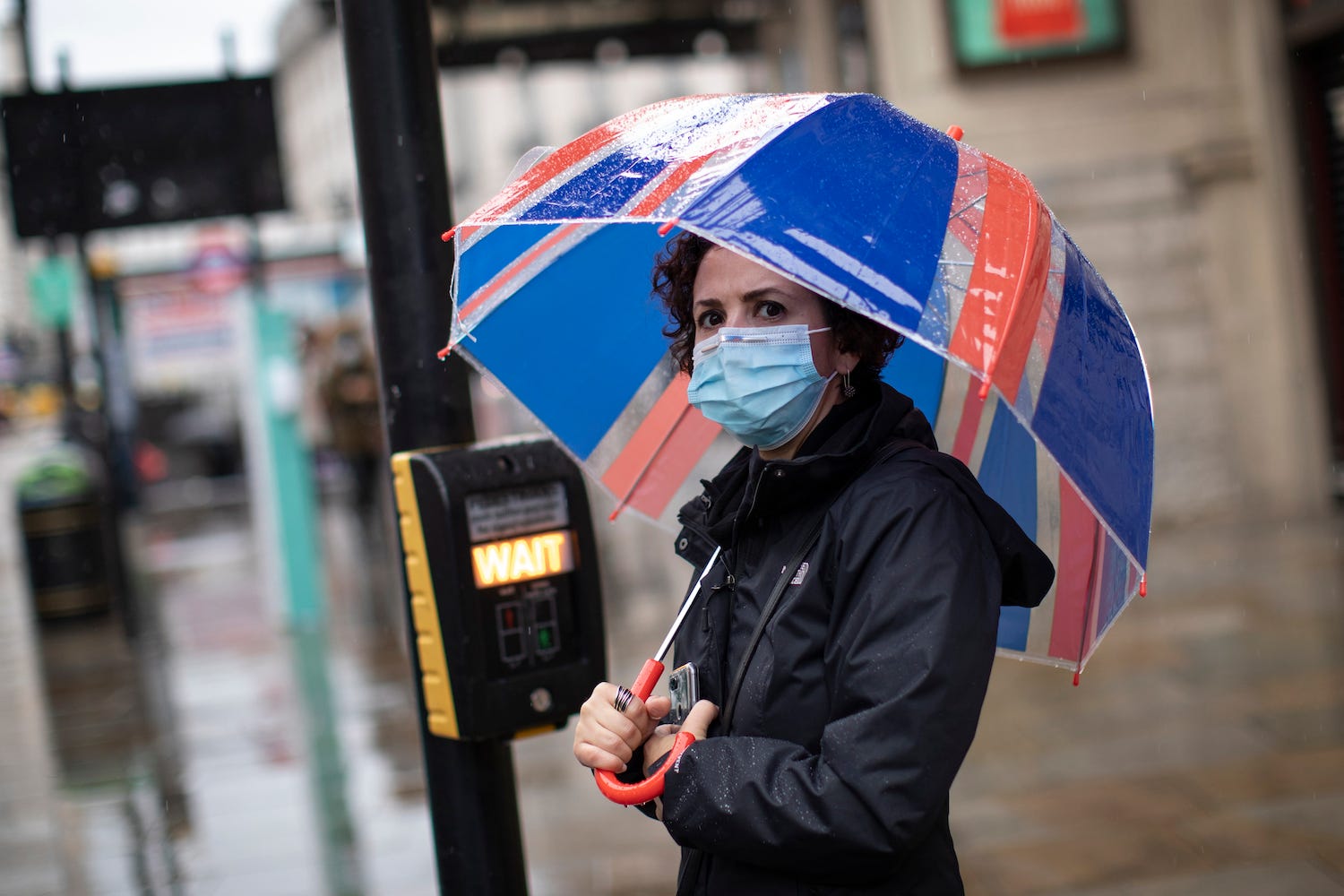
Dan Kitwood/Getty Images
- Six cases of the coronavirus variant first found in Brazil, called P.1, have been detected in the UK.
- One of the people infected didn’t complete a test registration card, so officials don’t know who it is.
- P.1 is probably more infectious, and has spread to 28 countries, including the US.
- Visit the Business section of Insider for more stories.
The coronavirus variant first identified in Brazil, called P.1, has been detected in the UK, but officials are struggling to track down one infected person because they didn’t fill out a form with their details.
Public Health England (PHE) said Sunday that there were six P.1 cases in total in the UK – three in Scotland and three in England. Two of the cases in England were from a single household in South Gloucestershire, south-west England, which had a history of travel to Brazil.
PHE also confirmed a “third, currently unlinked case.” This was someone that didn’t complete a COVID-19 registration form when they took their test, so PHE cannot immediately track them down.
PHE has launched an appeal for anyone who took a test on February 12 or February 13, around the time that the test was processed, to come forward. Vaccines Minister Nadhim Zahawi said PHE was working with the postal service to try to locate the unidentified person, the BBC reported.
P.1 was first detected in four travelers from Brazil who flew to Japan and were tested during routine screening in Tokyo on January 2. It has since spread to 28 countries, including to the US, where there are 10 cases, according to GISAID. P.1 was first found in the US in Minnesota on January 26.
The two people in South Gloucestershire in the UK with P.1 had traveled to London from Sao Paulo in Brazil via Switzerland on February 10. The health service is now testing other people without symptoms in the South Gloucestershire area to try to find any other P.1 cases.
"We have identified these [P.1] cases thanks to the UK's advanced sequencing capabilities which means we are finding more variants and mutations than many other countries and are therefore able to take action quickly," Dr. Susan Hopkins, PHE strategic response director for COVID-19 and NHS Test and Trace Medical Advisor, said in a statement.
The UK hotel quarantine rule, whereby travelers coming into the country from 33 countries - including Brazil - must quarantine in a hotel for 10 days on arrival, came into effect on February 15, after their arrival. Before this date, people were asked to self-isolate at home for 10 days.
The people identified with P.1 in Scotland had flown to Aberdeen from Brazil via Paris and London, and were self-isolating, the Scottish government said Sunday. The Scottish government said that others on the flight were being contacted. In Scotland, the hotel quarantine rule applies to travelers from all countries.
P.1 has eleven mutations. Three of them are in the spike protein - the part of the virus that it uses to infect human cells.
Two of the mutations, called E484K and K417T, could mean that P.1 is able to evade antibodies produced by the body in response to COVID-19 or after immunization. There have been a number of reinfections reported, but we don't yet know whether vaccines work less well against P.1.
These two mutations are also found in the variant first identified in South Africa, and early studies have shown that Pfizer-BioNTech's COVID-19 vaccine worked less well against lab-made viruses containing these mutations.
Another mutation, called N501Y, probably makes P.1 more infectious. It was initially detected in Amazonas, north-west Brazil, on December 4 and by January 21, 91% of people with COVID-19 in the region were infected with P.1, according to the World Health Organization.
It is not yet known whether P.1. is more contagious than other coronavirus variants such as B.1.1.7, the variant first detected in the UK.
B.1.1.7 has spread to 82 countries worldwide including to 46 states in the US, where it is fast-becoming the most common coronavirus strain in the country, according to the Centers for Disease Control and Prevention.
It is also unclear whether or not P.1. is more deadly. This is "under investigation", according to the WHO.
"The measures to stop [P.1] spreading do not change," Hopkins said. "Stay at home [...] cover your nose and mouth, wash your hands thoroughly."
